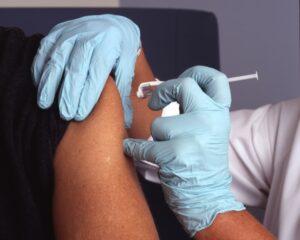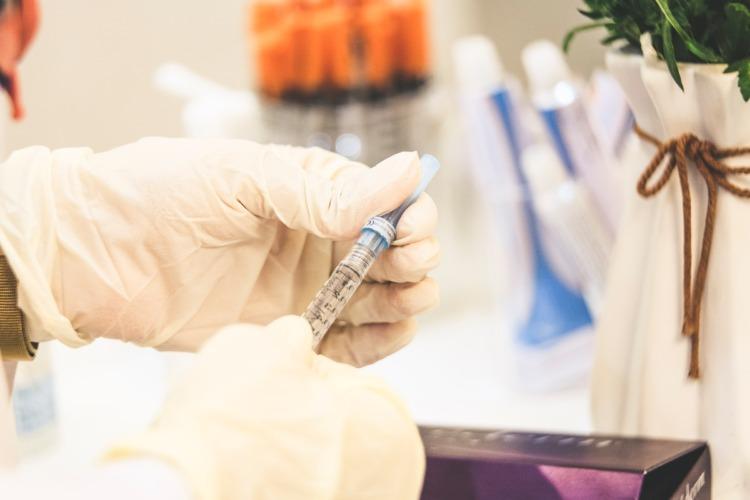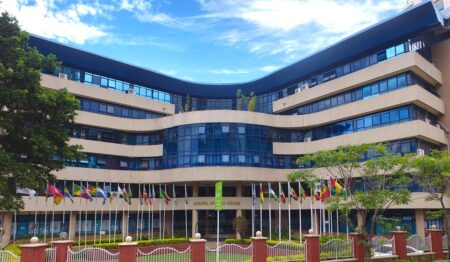The public sector in many African countries continues to struggle to deliver healthcare.
This is according to data by Medical Credit Fund which indicates that more than fifty percent of Africans are forced to use private healthcare facilities as an alternative.
Medical Credit Fund is a not-for-profit initiative exclusively dedicated to financing small and medium-sized healthcare companies in Africa.
The Fund notes that many private healthcare facilities are mainly run as health small and medium sized healthcare companies and are the ones that serve the lower income groups.
These however have poor infrastructure and equipment and limited means to invest in quality improvement.
The Fund also reveals that commercial banks often shy away from health SMEs because they consider them to be too risky.
IMF approves $1b to Ghana to address COVID-19
Change of Tune
To grow this SME sector, those in business are now turning to credit.
According to the PharmAccess Foundation which runs Medical Credit Fund, digital lending has proven crucial during the pandemic, with Covid-19 increasing mobile money use and reducing banks’ appetite for SME lending even further.
Isaiah Okoth, the Country Director Kenya for PharmAccess Foundation said many facilities risked closure at the height of the pandemic, and could not access banks loans to cover cash flow gaps or buy personal protective equipment (PPEs).
“Attainment of Universal Health Coverage requires a balance between enabling citizens to access care without experiencing financial hardship as well as availability of healthcare facilities that offer quality care. We are harnessing the potential of the mobile phone to improve access to quality healthcare in Africa,” said Okoth.
Okoth spoke during Medical Credit Fund’s first loan disbursement under the second phase of its emergency loan guarantee facility that target small and medium-sized healthcare companies in Africa.
The loan which totals to Sh45.2 million has been given to Sori Lakeside Hospital based in Homabay County in Kenya.
According to the Fund, this new phase of funding is expected to increase investments in African health infrastructure and improve access to quality primary healthcare services.
Arjan Poels the Managing Director of Medical Credit Fund says the second phase (MCF2) is also geared towards driving equitable and quality healthcare by supporting clinics to improve the services they deliver.
“Many health SMEs have poor infrastructure and equipment because of limited access to capital. This affects the quality of care they offer to patients who visit their facilities. The COVID-19 pandemic has clearly demonstrated the importance of well-functioning health systems. MCF2 is geared towards driving equitable and quality healthcare by supporting healthcare clinics to improve the healthcare they deliver,” he said. (https://www.apolloclinic.com/)
IMF approves an additional $171.9 m to Madagascar

This phase of the initiative is expected to deploy innovative digital finance solutions to increase investments in African health infrastructure and improve access to quality primary healthcare services.
Accordingly, the second phase of funding is expected to start in its current countries of operation, which include; Kenya, Ghana, Nigeria, Tanzania and Uganda, then gradually extend to other countries.
Arjan Poels, Managing Director, Medical Credit Fund said the COVID-19 pandemic has clearly demonstrated the importance of well-functioning health systems.
“MCF2 is geared towards driving equitable and quality healthcare by supporting healthcare clinics to improve the healthcare they deliver,” he said.
Poels has also revealed that the second phase of funding has received a catalytic investment of Sh900 million from the Dutch Ministry of Foreign Affairs.
Commenting on the investment, Ambassador Maarten Brouwer the Embassy of the Kingdom of the Netherlands in Kenya said driving the attainment of Universal Health Coverage will ensure that all people, regardless of their social status, can access quality healthcare services.
“The vision of Mobile Credit Fund aligns with our resolve to empower healthcare facilities to offer quality care to all,” he said.
Official data indicates that COVID-19 and the mitigation measures taken to limit its spread have significantly disrupted other essential health services in Africa.
The disruption has threatened the control of major high-burden diseases such as HIV, tuberculosis (TB), and malaria as well as the prevention of maternal and child mortality.











